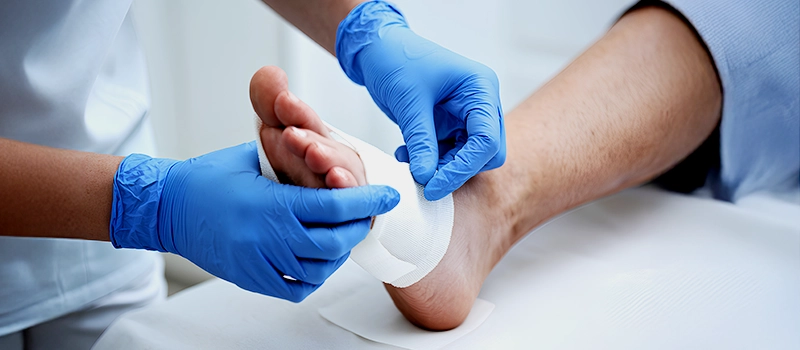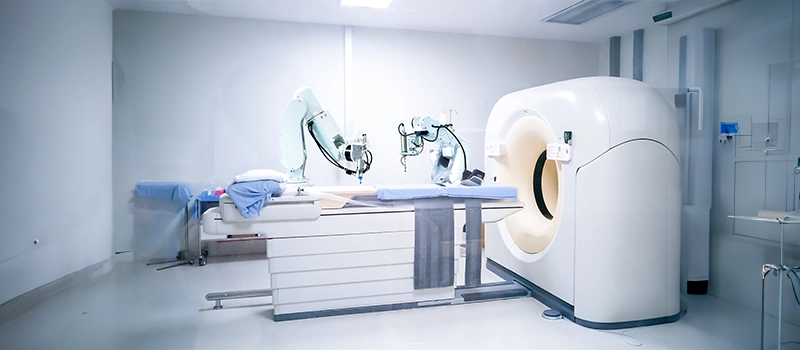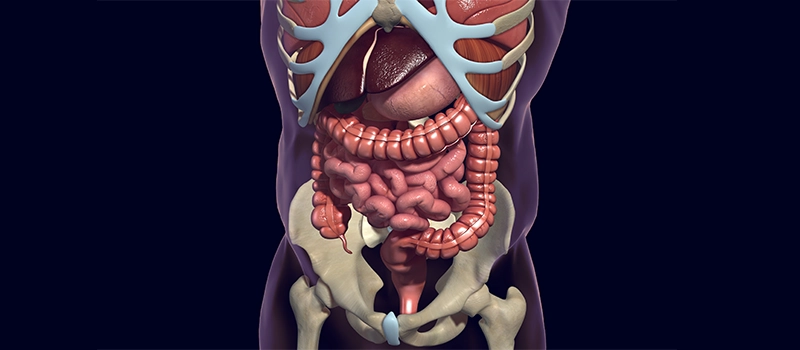
MRCOG Part 1: Eligibility, Exam Pattern, Exam Date & Fee Structure
MRCOG (Member of the Royal College of Obstetricians and Gynecologists) is an RCOG membership examination, which is globally recognized as the gold standard qualification in the obstetrics & gynecology specialty. An aspirant needs to go through a three-part assessment to complete the MRCOG membership exam.
MRCOG Part 1
MRCOG Part 1 is the first stage of the RCOG’s membership exam. The aim of this part is basically to assess the understanding of a medico in the basic and clinical sciences relevant to Obstetrics and Gynecology.
MRCOG Part 1 Exam Pattern
- MRCOG Part 1 comprises two papers, SBA paper 1 and SBA paper 2.
- Both are Computer-based tests (CBT).
- Each paper is of 100 questions with a single best response (SBAs).
- Each paper receives the same number of points, so paper 1 receives 50% of the total, and paper 2 also counts for 50% of the total marks.
- There is no minimum score requirement for both papers.
- A candidate’s overall (combined) mark is the only factor in determining their outcome.
Timetable of MRCOG Part 1
| SBA Paper 1 and SBA Paper 2 | |
| Particulars | Description |
| Duration | 2.5 hours (150 minutes) for each paper |
| Number of questions | 100 SBAs for each paper |
| Lunch break (approximately one hour) between both the papers | |
Steps to remember
- Create online RCOG account.
- Get your eligibility checked by emailing the application form.
- After getting eligibility approval, complete an ‘Expression of Interest form’.
- Check the exam timetable and book your exam country slot and pay the exam fee.
- Book Pearson VUE slot.
How to Apply?
Eligibility for MRCOG Part 1
- After obtaining an undergraduate medical degree, the candidate becomes eligible for the MRCOG Part 1 exam.
- Postgraduate training is not required to appear for the part 1 exam.
- Candidates applying for the first time will have to submit a complete eligibility application form and get it approved.
- No more than 6 attempts are allowed for both parts 1 and 2.
Eligibility approval and application submission
- To get the eligibility approval, an aspirant needs to first write an email.
- Mention the subject line as “Part 1 Eligibility Assessment Application (enter your college number)”.
- Attach the application form available in the “Part 1 MRCOG Eligibility application form” section on the official website.
- Also, attach a scan or photo of your original primary medical degree certificate or, if your medical degree certificate does not list your primary medical degree and university, then attach a scan or photo of your medical registration certificate.
- Email at part1eligibility@rcog.org.uk with your submission. Following that, an automated response describing what to do next will appear.
- Make sure your application is complete and all the mentioned details are correct.
- If a candidate is re-appearing for the exam so, they must have got their eligibility approved on the first attempt, and hence, they can directly book an exam, and complete the Expression of Interest form.
Medical Degree Certificate
You must affix a copy of your degree certificate or a medical registration certificate, which attests to your primary medical qualification and university if you are not GMC-registered. You do not have to send a copy of your medical degree certificate if you are GMC-registered. Your medical degree certificate must be in English.
It takes around 4 weeks to process your Part 1 Eligibility application following the advertised closing date. If accepted, you’ll be able to reserve a spot on the Part 1 MRCOG exam.
How to book MRCOG Part 1 exam?
- Expression of Interest Form
- You need to submit an Expression of Interest form within the stipulated time, available on the official website. It’s only afterwards that you will be able to book an exam when the window opens.
- While filling out the Expression of Interest form, it is the responsibility of a candidate to confirm that the email address and College account number they have filled in on this form are accurate and correspond to the information on their individual RCOG accounts. You will not be able to reserve a spot on the following exam if any of the information you enter in this form does not comply with this requirement.
- After submitting the form, the candidate will see a confirmation screen on their web browser. It is advised to take a screenshot of this confirmation screen for records. Please be aware that email confirmation will not be sent by the RCOG for submitting the form.
- When the application window opens, the eligible candidates will receive an email along with instructions to book an exam place at available Pearson VUE test centres.
- Exam Calendar
The MRCOG Part 1 exam is conducted twice a year, one in the month of January (was held on January 2025) and the other in the month of July (to be held on July 2025).
a. MRCOG Part 1 Exam calendar for January
| Opening Date for Booking window application | 29 October 2024, (Tuesday) |
| Closing Date for Booking window application | 17 December 2024, (Thursday) |
| MRCOG Part 1 Exam Date | 21 January 2025, (Tuesday) |
| Result Declaration | 19 February 2025, (Wednesday) |
b. Exam Calendar for the Upcoming MRCOG Part 1 Exam in July 2024
| Part 1 Eligibility Approval Deadline | 11 March 2025 , (Tuesday) |
| Closing Date for Expression of Interest form | 25 March 2025, (Tuesday) |
| Opening Date for Booking window application | 22 April 2025, (Tuesday) |
| Closing Date for Booking window application | 3 June 2025, (Tuesday) |
| MRCOG Part 1 Exam Date | 1 July 2025, (Tuesday) |
| Result Declaration | 30 July 2025, (Wednesday) |
MRCOG Part 1 Examination Fee
| Location | Fees (2025) |
| UK and Republic of Ireland | £534 |
| Band A | £644 |
| Band B (India comes under this category) | £555 |
| Band C | £443 |
Points to Note for the fee structure:
- India comes under B and B. Thus, the fee for the candidates having exam centres in India is £544 which is equivalent to INR 49,583.15. The amount in the Indian currency varies as per the currency change.
- Payments are linked to the country’s bandings of international membership fees.
- Banding applies to the center where you take the exam, not the candidate’s country of residence.
- You can check out on the official website that in which band your exam centre country falls under.
- Search and book the country location
- Applicants who have accepted eligibility and submitted an Expression of Interest will receive a Booking token.
- Reservation ID does not guarantee a place for the next exam, but the possibility to reserve free places when the reservation window opens.
- At this stage, candidates have the option to book an exam from a country that is available at the time of booking.
- Book Pearson VUE centre
After booking a country location, candidates will be contacted to book an exam slot at one of Pearson VUE’s test centres in the country which you have chosen and paid for.
MRCOG Pass Marks
- The standard setting is done to ensure fair examination and to accurately determine the candidate’s performance. The pass marks and the pass rate vary from exam sitting to exam sitting as there is no fixed level or quota.
- For Part 1 MRCOG, Ebel’s Method is used for the standard setting.
- This approach considers the level of difficulty and the question’s applicability to ST3 practice.
- Ebel’s research focuses on estimating the percentage of questionable candidates who would properly answer each exam question.
- Ebel’s method divides problems into nine different categories by classifying them as easy, medium, or hard, and by classifying their relevance as essential, important or acceptable. The standard-setting panel then determines what proportion of questions from each category they feel a borderline applicant would correctly respond to.
- The borderline candidate is a fictitious test taker who is of average intelligence, has a fair bit of clinical knowledge, and has made a respectable amount of preparation. This candidate should be just at the right level to pass.
How long should you wait to take the following MRCOG Part?
- Candidates who passed the Part 1 MRCOG after March 2013 must retake the exam within seven years after the Part 2 MRCOG exam date.
- The seven-year period is pro rata. This indicates that for trainees enrolled in less than full-time training or who take a break from training, the 7-year duration is proportionally extended, up to a maximum of 10 years.
- Candidates who passed Part 1 of the MRCOG in March 2013 or earlier must sit for Part 2 of the MRCOG within ten years of passing Part 1.
- Candidates who complete MRCOG Part 2 must take Part 3 of the MRCOG within seven years (prorated) of the Part 2 exam date.
- It is possible to take the MRCOG Part 1 before beginning UK specialist training.
- The MRCOG Part 2 must be taken within 10 years of the exam date when the candidate passed Part 1 MRCOG, if they do not desire to be included in the UK Specialist Register.
- There is no time limit on how frequently applicants may retake Part 2 or Part 3 MRCOG if they do not want to be added to the UK Specialist Register.
Preparation Tips:
- An aspirant must practice with a range of revision resources available in the support material section on the official website.
- All the aspirants are also advised to register with RCOG college to get access to a lot of benefits to support their preparation.
- You can enroll in the online MRCOG preparation courses by top faculty.
- Time management and an effective preparation strategy are must.
For those preparing for MRCOG Part 1, DigiNEET offers a solid foundation that can be especially useful.
While MRCOG Part 1 focuses on obstetrics and gynecology, DigiNEET’s comprehensive curriculum covering all 19 MBBS subjects, including clinical medicine and key areas related to women’s health, equips candidates with the necessary knowledge base.
With in-depth video lectures, MCQs, and mock tests, DigiNEET helps students hone their clinical reasoning and exam strategies, ensuring they are well-prepared for the MRCOG exam and other similar postgraduate medical exams.
Related post


















































